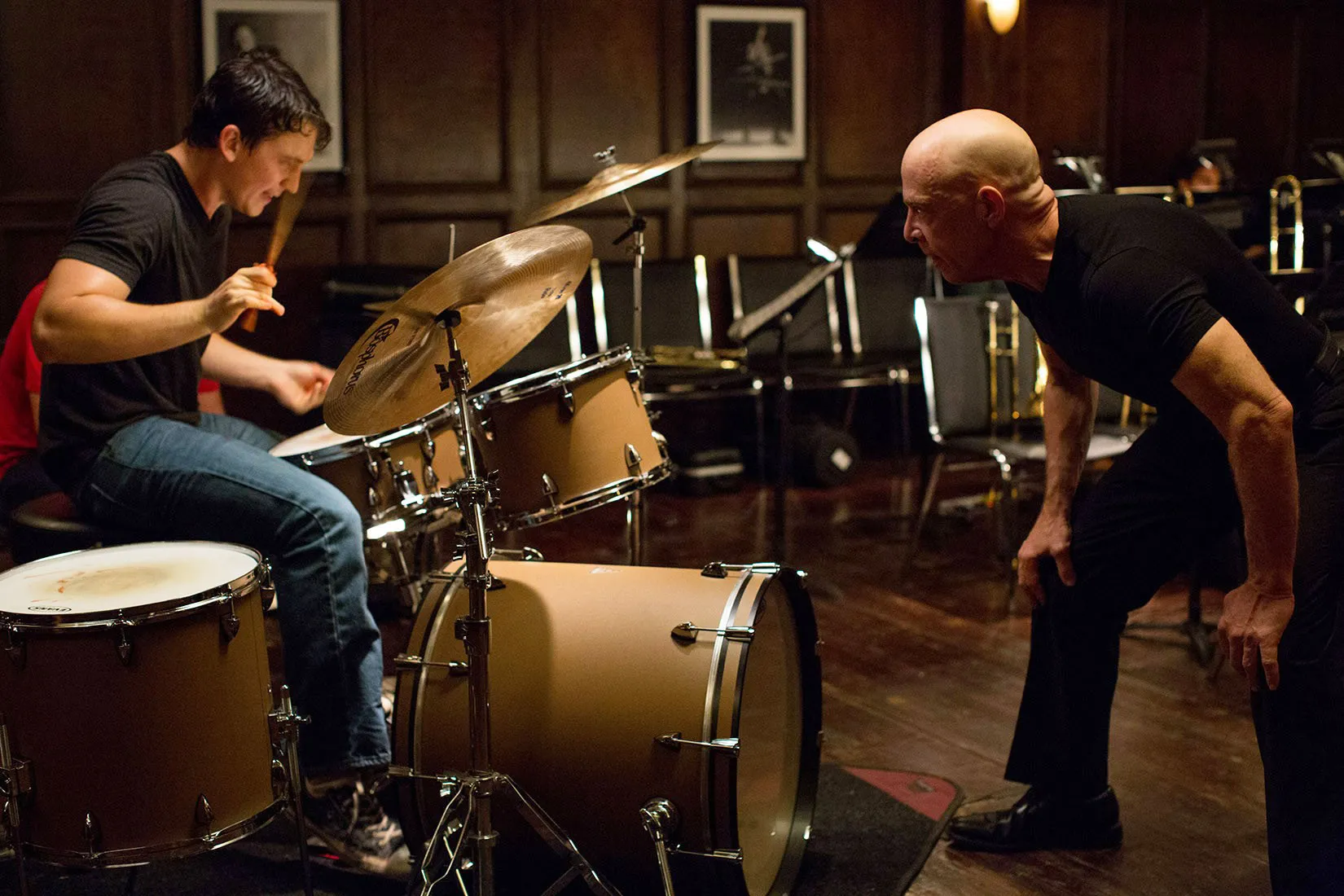Directed by Damien Chazelle, Whiplash (2014) is an intense film about Andrew Neiman, a young jazz drummer with the ambition to become one of the greatest drummers of all time. Set in the intense environment of a music conservatory, the film dives into a world where talent and human capability are pushed to their breaking point. An important part of Andrew’s journey is the toxic bond he forms with Terence Fletcher—a tyrannical, brutally demanding music instructor who stops at nothing to push his students beyond their limits. Fletcher’s teaching methods are cruel, driving his musicians to the edge of sanity, and in some cases, beyond. He forces Andrew to confront his own physical and mental boundaries. From the very first commanding drumbeat to the electrifying climax, Whiplash grips its audience and never lets go.
The performances are nothing short of incredible. Miles Teller perfectly casts as Andrew, embodying both his relentless ambition and his internal struggle. Teller’s remarkable performance vividly conveys every drum solo, every flicker of doubt, and every drop of blood, sweat, and tears. Equally unforgettable is J.K. Simmons’ portrayal of Fletcher. Delivering one of the most commanding performances in recent cinematic history, Simmons embodies Fletcher with volcanic anger and chilling intensity. He masterfully balances the character’s dual nature as a mentor and a monster, a performance that rightfully earned him the Oscar for Best Supporting Actor.
The music is the film’s soul, and Chazelle ensures it’s as electrifying as the performances. The jazz sequences are nothing short of brilliant, plunging viewers into the high-pressure world of Andrew’s practice sessions and performances. Every drum solo feels like a battle, with Andrew pouring every ounce of himself into the rhythm. The intricate sound edits, rapid cuts, and close-up shots create a visceral experience, making the audience feel the sweat, blood, and calluses on Andrew’s hands. The music isn’t just background—it’s a driving force, mirroring Andrew’s inner turmoil and unrelenting quest for greatness.
Beyond its technical brilliance, Whiplash delves into profound and thought-provoking themes. It raises critical questions about the cost of ambition and whether greatness justifies the sacrifices it demands. Fletcher’s methods spark ethical debates: Is he an abusive tyrant, or is he a necessary force to unlock human potential? Similarly, Andrew’s willingness to endure Fletcher’s relentless abuse prompts another question: How much is too much to sacrifice in the name of success? These moral ambiguities give the film its emotional depth, resonating deeply with anyone who has pursued a dream or grappled with the pressures of perfection.
The film’s climax is nothing short of extraordinary. Andrew’s final performance is a tour de force, showcasing not only his technical mastery but also the culmination of his emotional journey. For some, it is a triumphant moment—Andrew achieves the greatness he has always sought and earns Fletcher’s respect. For others, it’s a haunting tragedy, a stark reminder of the physical, emotional, and personal sacrifices he’s made to reach this point. The beauty of the ending lies in its ambiguity, leaving viewers to interpret and debate its meaning long after the credits roll.
Ultimately, Whiplash is not just a film about music—it’s a film about the human spirit, the relentless pursuit of greatness, and the fine line between passion and obsession. With its brilliant performances, gripping narrative, and unforgettable music, Whiplash is an experience that stays with you. Rather than simply asking how far one would go for greatness, it challenges viewers to confront their own boundaries and dreams.





